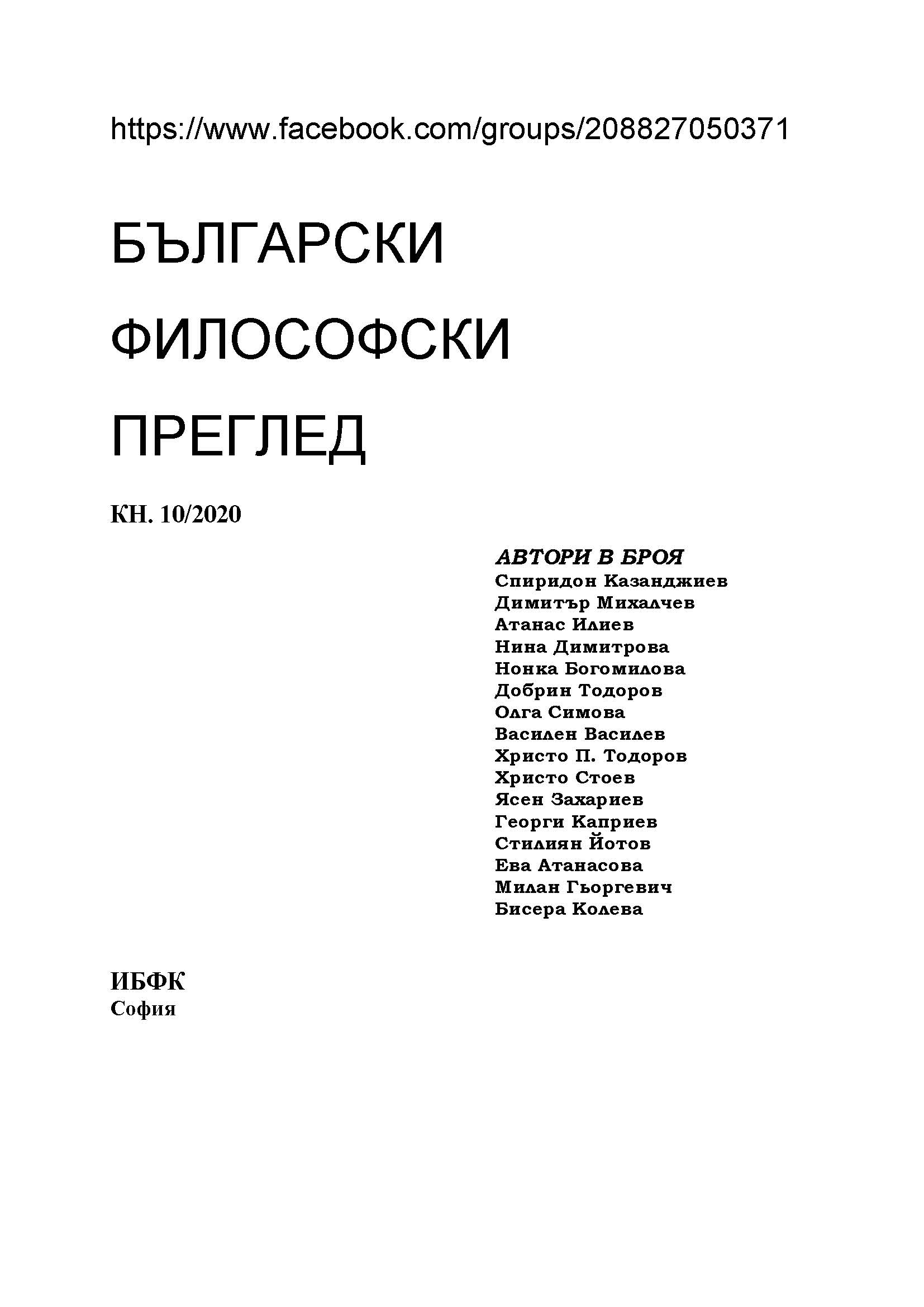Феноменологически мотиви в трансценденталната философия на Кант
Phenomenological Motives in Kant’s Transcendental Philosophy
Author(s): Hristo StoevSubject(s): Philosophy, Epistemology, Early Modern Philosophy, 19th Century Philosophy, Contemporary Philosophy, German Idealism, Phenomenology
Published by: Институт за българска философска култура
Summary/Abstract: The aim of the article is to reconstruct some important themes and conceptual motives that mark the continuity between Kant’s transcendental philosophy and Husserl's phenomenology. They are divided into dozen headings in order to support more analytical approach. These include the difference between phenomenology and phenomenalism, the status of the thing in itself and the transcendental object,the faculty of intuition, Kant’s refutation of idealism in relation to Hus serl’slifeworld, the role of imagination, the time-consciousness and others.The aim of the article is to reconstruct some important themes and conceptual motives that mark the continuity between Kant’s transcendental philosophy and Husserl’s phenomenology. They are divided into dozen headings in order to support more analytical approach. These include: the difference between phenomenology and phenomenalism, the status of the thing in itself and the transcendental object, the faculty of intuition, Kant’s refutation of idealism in relation to Hus serl’s lifeworld, the role of imagination, the time-consciousness and others.
Journal: Български философски преглед
- Issue Year: 2020
- Issue No: 10
- Page Range: 128-145
- Page Count: 18
- Language: Bulgarian
- Content File-PDF

